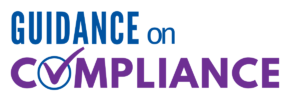In healthcare, the role of caregivers is important in supporting patients’ functional performance in their homes or communities. For traditional Medicare Part B, beginning Fiscal Year (FY) 2024, the Centers for Medicare and Medicaid Services (CMS) adopted Current Procedural Terminology (CPT) codes for Caregiver Training Services (CTS). CPT codes 97550, 97551, and 97552 are reimbursable by Medicare when a physician or a non-physician practitioner (NPP) (nurse practitioners, clinical nurse specialists, certified nurse-midwives, physician assistants, and clinical psychologists) or therapist (physical therapist (PT), occupational therapist (OT), or speech-language pathologist (SLP)) provide caregiver training to assist patients in carrying out an individualized treatment plan.
CMS defined a caregiver in the Final Rule for CPT codes 97550, 97551, and 97552 as “an adult family member or other individual who has a significant relationship with, and who provides a broad range of assistance to, an individual with a chronic or other health condition, disability, or functional limitation’’ and ‘‘a family member, friend, or neighbor who provides unpaid assistance to a person with a chronic illness or disabling condition’’ (Federal Register, PDF file page 100).
CMS CPT codes 97550, 97551, and 97552 (Federal Register, PDF file page 98) defines caregiver training services under a therapy plan of care established by a PT, OT, SLP. These codes allow treating practitioners to report the training furnished to a caregiver, in tandem with the diagnostic and treatment services furnished directly to the patient, in strategies and specific activities to assist the patient to carry out the treatment plan.”
- CPT code 97550 * – CTS in strategies and techniques to facilitate the patient’s functional performance in the home or community (e.g., activities of daily living [ADLs], instrumental ADLs [IADLs], transfers, mobility, communication, swallowing, feeding, problem-solving, safety practices). Without the patient present, one or more caregiver(s) for a single patient, face-to-face, initial 30 minutes.
- CPT code 97551 ** – Caregiver training in strategies and techniques to facilitate the patient’s functional performance in the home or community (e.g., activities of daily living [ADLs], instrumental ADLs [IADLs], transfers, mobility, communication, swallowing, feeding, problem-solving, safety practices). Without the patient present, one or more caregiver(s) for a single patient, face-to-face, each additional 15 minutes (list separately in addition to code for primary service).
Note: Use 97551 ** in conjunction with 97550 *
- CPT code 97552 – Group caregiver training in strategies and techniques to facilitate the patient’s functional performance in the home or community (e.g., activities of daily living [ADLs], instrumental ADLs [IADLs], transfers, mobility, communication, swallowing, feeding, problem-solving, safety practices). Indicated when the patients have similar therapy goals or needs and/or medical conditions. Use Group caregiver training in scenarios without the patient present, multiple sets of caregivers for different patients, face-to-face, not timed.
Let us discuss how these CPT codes can be applied.
CPT Code 97550 – Initial Face-to-Face Caregiver Training
The OT conducted a face-to-face initial CTS for the daughter, Ms. Daughter, and close friend, Mr. Friend, of a patient who had a stroke. The patient was not present during the session. The goal of the CTS was to equip Ms. Daughter and Mr. Friend with the necessary skills to provide effective and safe assistance to the patient, during activities of daily living (ADLs), transfers, and safety practices. The initial training session lasted for 30 minutes and focused on various aspects of caregiving.
First, the OT demonstrated the proper techniques for assisting with ADLs, including bathing, dressing, and grooming. During this part of the training, Ms. Daughter and Mr. Friend were taught how to help the patient maintain her personal hygiene and how to assist her with dressing and styling her hair. Next, the OT focused on transfer techniques, which are essential for helping the patient move from one position to another.
The OT recorded CPT code 97550 and documented the training provided, which captured the initial 30-minute CTS provided to the patient’s daughter and close friend, Ms. Daughter and Mr. Friend.
CPT Code 97551 – Additional Face-to-Face Caregiver Training
The OT identified that the daughter, Ms. Daughter, and close friend, Mr. Friend, of the same patient as discussed above required further training. The subsequent session goes beyond the initial 30 minutes, emphasizing safety practices that Ms. Daughter and Mr. Friend should remember while assisting the patient.. This included proper body mechanics, the use of assistive devices, ways to prevent falls and injuries, and more advanced techniques for mobility.
In conjunction with CPT Code 97550, the OT uses CPT Code 97551 to list each additional 15-minute increment separately. This ensures accurate documentation and billing, reflecting the extended duration of the caregiver training session tailored to the patient’s needs.
CPT Code 97552 – Group Caregiver Training Session
The OT organized a group training session for spouses, children, and friends of patient L, patient W, and patient C., who all had a stroke. This is to further enhance their skills in assisting the respective patients.
The session lasted for 25 minutes. The OT reported the service using CPT code 97552 per patient represented, regardless of the number of caregivers in the session.
When taking care of patients, it is important to involve and train their family, friends, or unpaid caregivers. Therapists can now get reimbursed for training using the new codes.
- The inclusion of the CTS CPT codes indicates the services are being billed; remember to focus on detailed documentation of CTS for non-paid caregivers.
- It is essential to make certain caregivers receive specialized training tailored to the patient’s unique needs.
- Ensuring that caregivers are equipped with the knowledge and skills they need to provide effective care promotes the patient’s functional abilities, overall well-being, and quality of life.
LW Consulting, Inc. (LWCI) offers a comprehensive range of services that can assist your organization in maintaining compliance, identifying trends, providing education and training, or conducting documentation and coding audits. For more information, contact LWCI to connect with one of our experts!


